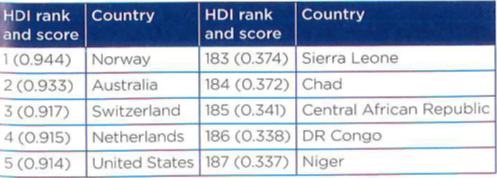In 2018 I was lucky to be awarded a grant from the British Academy and Journal of Moral Education Trust to research whiteness in the Geography GCSE curriculum in England. Existing research pointed to the obstinate whiteness of the subject in Higher Education, but what about in schools? Previous school studies used the language of ‘Eurocentric’ geography and, after linking Eurocentricity with whiteness in a 2013 GCSE textbook chapter (Winter, 2018), I realised the time was right to investigate!
The funding allowed me to carry out research in two multicultural co-educational schools where I analysed GCSE policy and teaching texts, observed lessons, interviewed students and teachers and organised workshops to discuss the project findings with participants, teachers of other subjects, parents and governors.
I focused the study on the topic of ‘Global Development’ because it seemed to offer the most scope (a close contender, for obvious reasons, was ‘Migration’ – maybe the focus for the next study?). As a curriculum researcher, I’ve always believed in the power of curriculum to influence what students think. By this I don’t mean that all students engage with and take on board what they are taught in the classroom – far from it! But I was curious to understand if the ‘framing’ of knowledge about global places that students studied in geography lessons matched the knowledge they gleaned at home, through the media, from friends and communities. I also believe that geography isn’t just a way of describing the world, but a discourse through which the world is constructed. So, how we describe the world contributes to how the world is, what it’s understood to be. Since geography constructs the world through a white lens, then whiteness becomes the norm and ‘non-white’ becomes the other.
The findings from the study are very rich, but depressing too. I identified three main themes from the data, although overlaps between themes occur: 1) geography divides the world, 2) colour-blindness and 3) performativity.
In the first theme a number of devices were found to impose an ‘us’ and ‘them’ binary on the world, dividing ‘developed’ from ‘developing’ countries without explanation of the historical and contemporary political drivers of global inequality. One such device is comparison of extreme-country-cases, using reductive statistical indicators. For example, one GCSE textbook compares ‘the world’s highest- and lowest- scoring countries in 2015’ using the Human Development Index (HDI):

Widdowson et al, 2016, p. 253.
In the second theme, the concept of ‘race’ and its effects in reproducing racialised difference and value, and in normalising whiteness, was erased from the curriculum, even though it lurked below the surface and was manifest through implicit racialisation. Students were aware of the colour-blind curriculum:
Interviewer: … did you notice these things that we’ve been talking about [whiteness] or not?
Student: I don’t think so. I think when it’s so subliminal, until things like this are pointed out, it kind of goes under the radar.
The final theme, performativity (Ball, 2003), was found to be the super-glue that holds the white geography curriculum firmly in place. Project teachers worked in a pressurised environment of high-stakes assessment and accountability, with an externally prescribed, mandatory, curriculum, underpinned by the notion of curriculum knowledge as objective, undisputable fact. The over-crowded curriculum and teachers’ responsibility to serve their students prevented them from challenging the white geography curriculum.
What’s to be done? The Decolonising Geography WhatsApp Collective is working hard to disrupt the obstinate white school geography curriculum in many ways. Members are introducing decolonising ideas and practices into schools, critically reviewing material for examination boards and publishers, developing the #Voicesproject to understand the experiences of marginalised groups, writing articles for educational publications and presenting their work at conferences, like the Geographical Association conference in April, 2021. If you’re interested to join the Collective, please e-mail decolonisegeography@gmail.com with your name, job title and mobile number.
Ball, S.J. (2003). The teacher’s soul and the terrors of performativity. Journal of Education Policy 18(2): 215-228.
Ross, S., (Ed.) Rowles, N., Holmes, D. and Digby, B. (2016) GCSE Geography AQA Oxford University Press.
GCSE Geography Paper 2 (2018) Challenges in the human environment 01.3.
Widdowson, J., Blackshaw, R., King, M., Oakes, S., Wheeler, S. and Witherick, M. (2016). AQA GCSE (9-1) Geography London: Hodder.
Winter, C. (2018). Disrupting colonial discourses in the Geography curriculum during the introduction of British Values policy in schools. Journal of Curriculum Studies, 50(4): 456-475.

